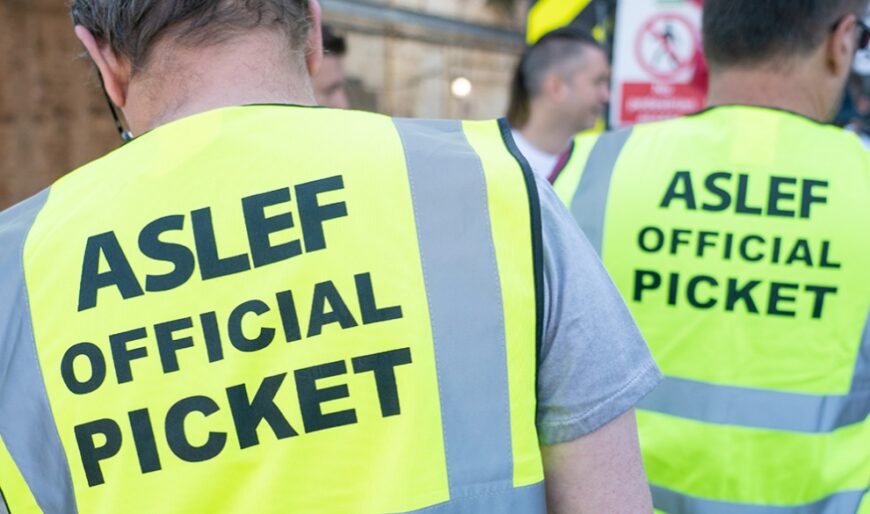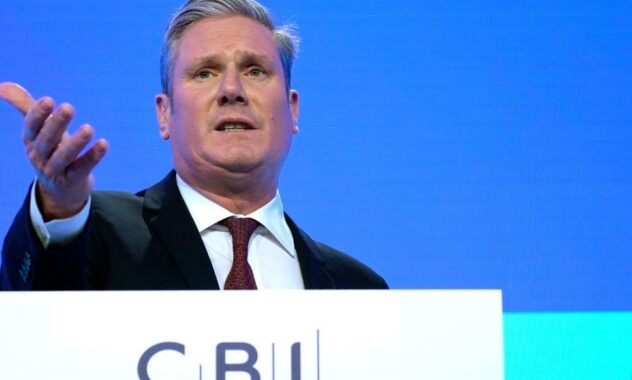Unions slam government’s proposals to further curb the human right to strike
Ministers confirm plans to introduce anti-worker legislation requiring key public services to maintain a minimum level of service during walkouts

PM Rishi Sunak’s “dead-end government is scapegoating workers with unworkable and counterproductive” proposals to further curb the human right to strike, the labour movement charged today.
Ministers have confirmed plans to introduce anti-worker legislation requiring key public services to maintain a minimum level of service during walkouts, severely blunting the impact of strikes.
The proposed Bill, which could give bosses powers to sue unions and sack workers who refuse to break their own legally held industrial action, would include health, education, fire and rescue, transport, border security and nuclear sectors.
The draconian move follows a long wave of industrial actions last year involving hundreds of thousands of workers across the public and private sectors over declining take-home pay and worsening working conditions.
The 2022 strikes, the biggest since the 1980s, look set to grow into 2023.
Unions condemned the Tories’ latest threats to “criminalise and victimise” workers, noting that Britain already has the “most restrictive anti-union laws in the Western world.”
The TUC slammed the “wrong, unworkable and almost certainly illegal” measures, repeating a pledge to take the government to court.
General secretary Paul Nowak said: “Trade unions will fight this every step of the way.
“We’re inviting every worker — public and private sector, and everyone who wants to protect British liberties — to be a part of our campaign to defend the right to strike.”
Downing Street claimed it would consult on an “adequate minimum service level coverage for emergency sectors, recognising that disruption to blue-light services puts lives at immediate risk.”
For other industries, including education, nuclear decommissioning, transport sectors and border security, the government suggested it hopes to reach voluntary agreements on minimum provision.
But Unite head Sharon Graham slammed the “silly posturing and game-playing” and demanded the PM “step up to the plate, act as a leader and start negotiating to resolve the crises his government has created.
“The game is up — people can see through the Tories’ web of lies.”
Fellow public services union Unison accused Whitehall of “picking ill-advised fights with NHS employees and their unions to mask years of dismal failure to tackle pay and staffing.”
Assistant general secretary Jon Richards said: “There’s a much simpler way for Rishi Sunak to put a swift end to NHS strikes — begin pay talks immediately.”
GMB leader Gary Smith argued that a “government that has presided over 13 years of failure in our public services is now seeking to scapegoat NHS staff and ambulance workers who do so much to care for people.”
The Royal College of Nursing branded the plans “undemocratic,” while Fire Brigades Union general secretary Matt Wrack said allowing “exploitative and vindicative bosses to pursue trade unionists in the courts is more in keeping with a dictatorial regime.”
Civil servants’ union PCS backed the pledge to resist “in and out of the courts,” with leader Mark Serwotka saying: “We view any attempt to outlaw strikes as an attack on the union movement and we will resist that at every stage.”
Social justice law firm Thompsons Solicitors warned ministers would be unable to “sidestep the legal challenges when they come — and they will.”
Trade union think tank the Institute of Employment Rights accused the government of being “hell-bent on trying to bulldoze their way through the rights of working people” and train drivers’ union Aslef noted that the proposed legislation could actually prolong strikes.
Labour deputy leader Angela Rayner blasted the “unworkable and unserious proposals from a dead-end government” and promised to repeal them if passed.
The opposition party failed to commit, however, to reversing the widely criticised Trade Union Act 2016, or any of the other anti-worker Acts which have been introduced since the 1980s.
This article was first published in the Morning Star. We thank them for their kind permission to reproduce it here.







